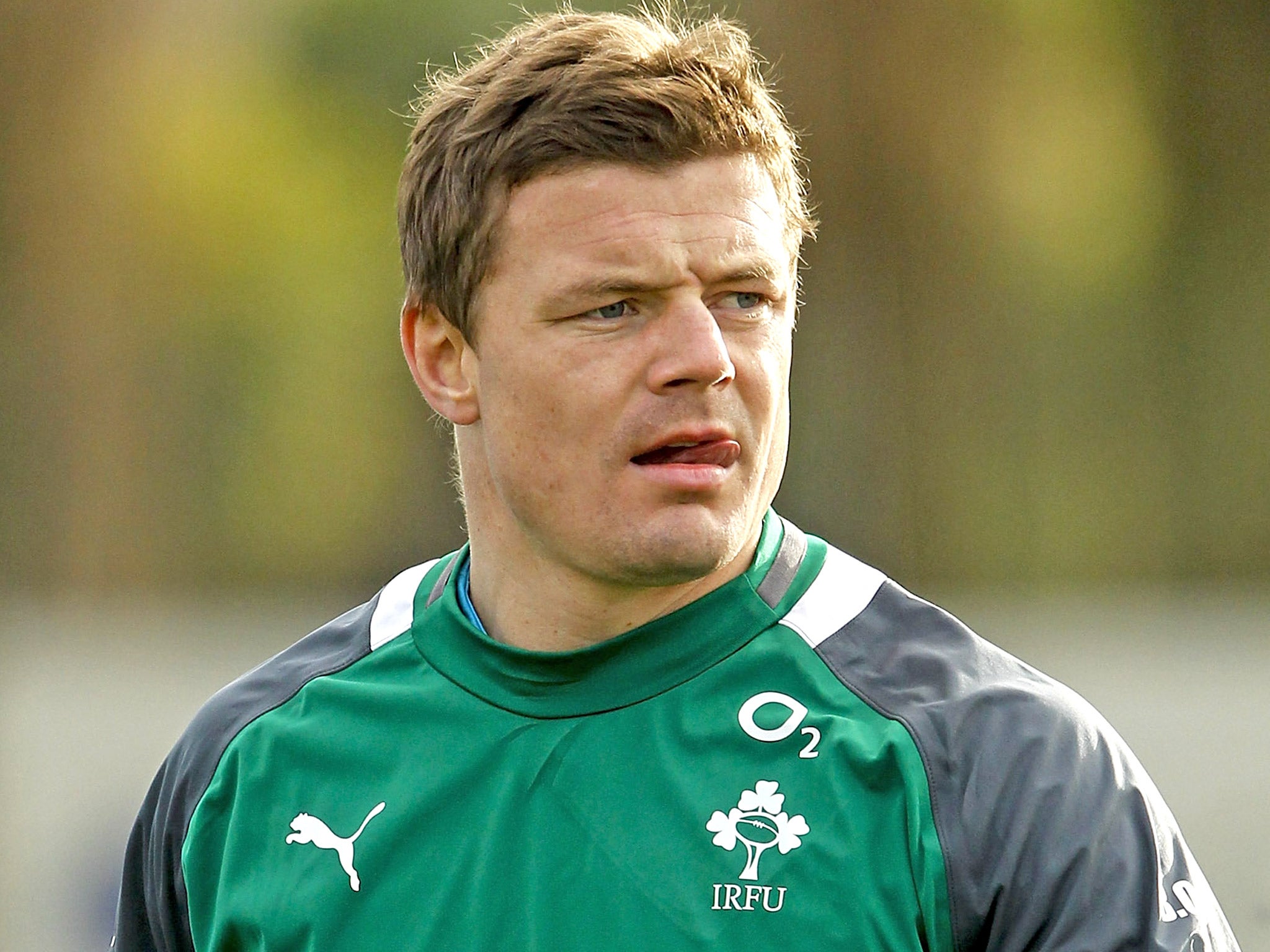England's midfield could change for Six Nations 'game of chess' with Ireland
England play Ireland in Dublin on Sunday

Just as Ireland were worrying themselves sick over two of their three front-line centres ahead of this weekend's Six Nations meeting with England – both Gordon D'Arcy and Keith Earls have been struggling for fitness since the opening-round victory over Wales – their opponents spent much of the day in a midfield maelstrom of their own. The fact that the red-rose problems resulted from an embarrassment of riches rather than a shortage of bodies did not make them any easier to solve.
Manu Tuilagi of Leicester, close to full fitness after recovering from the ankle injury that prevented him participating in the comprehensive demolition of Scotland, was in the thick of a fiercely combative double training shift, as were his fellow centres: Brad Barritt of Saracens, who has been running England's defence since breaking into the side this time last year, and Billy Twelvetrees of Gloucester, who added so much to the attacking game on his debut at Twickenham four days ago.
Unless the coaches get seriously radical and stick Tuilagi on the wing – far more of a possibility in the long term than in the here and now – a hard call will have to be made. Listening to the address by Mike Catt, it is a selectorial knot of Gordianesque proportions.
"It's a great headache to have from the team's point of view," the attacking skills coach said, the smile on his face darkened by the merest hint of a grimace. "Each player has his special attributes. It was great that Billy came along and played as he did against Scotland. Brad? To take him out of the equation would be very difficult. Manu? He hasn't played for four weeks and we need to see him train, because if someone is going to come back in when other guys have played exceptionally well, he has to show he can pick up the tempo and intensity. There again, there's nothing wrong with Brad and Manu partnering each other, just because Billy has turned up.
"This is going to be a game of chess. Our attacking game went pretty well against the Scots, but one of the reasons for that was the speed of ball produced by the forwards. Ireland are extremely good at slowing down opposition ball, so we'll have to bear that in mind. It's also the case that, with Brian O'Driscoll playing as well as he is in the Irish midfield, we can't afford to get carried away with our offloading. It's an area we need to get right."
England released their "not wanted on voyage" personnel last night, in good time for them to train with their clubs ahead of this weekend's Premiership matches. In so doing, the hierarchy gave little away on the selection front. Permitted to retain 25 players for an away game, rather than the 23 allowed for a home match, the head coach, Stuart Lancaster, retained all three centre contenders along with two challengers for the back-row substitute spot: Thomas Waldrom of Leicester and the uncapped Wasps forward Billy Vunipola.
The threat posed by O'Driscoll, the nearest thing to genuine rugby great currently playing in these islands, was highlighted by the England scrum-half Ben Youngs, who is expected to see off the challenge of his closest rival, Danny Care of Harlequins, for this week's game. "O'Driscoll is probably the best centre in the world when it comes to getting over the ball in the tackle area," the 23-year-old, with 29 caps to his name, admitted. "Come to think of it, he's a world leader in most of the things he does."
Youngs identified the breakdown as the key element in England's strategy – an area they won hands down against the Scots, but one in which the more aggressive Irish forwards frequently excel. "It will come down to mentality, attitude and technique," the half-back said, "and while we were good technically last weekend, this match will be a big challenge.
"We know the Irish like to scrap and hustle, so it's down to us to understand the animal we're up against, win the collisions and the tackle-area 'space' and play in the right areas of the field – especially in the first 20 or 30 minutes, when the environment is at its most hostile."
Subscribe to Independent Premium to bookmark this article
Want to bookmark your favourite articles and stories to read or reference later? Start your Independent Premium subscription today.

Join our commenting forum
Join thought-provoking conversations, follow other Independent readers and see their replies